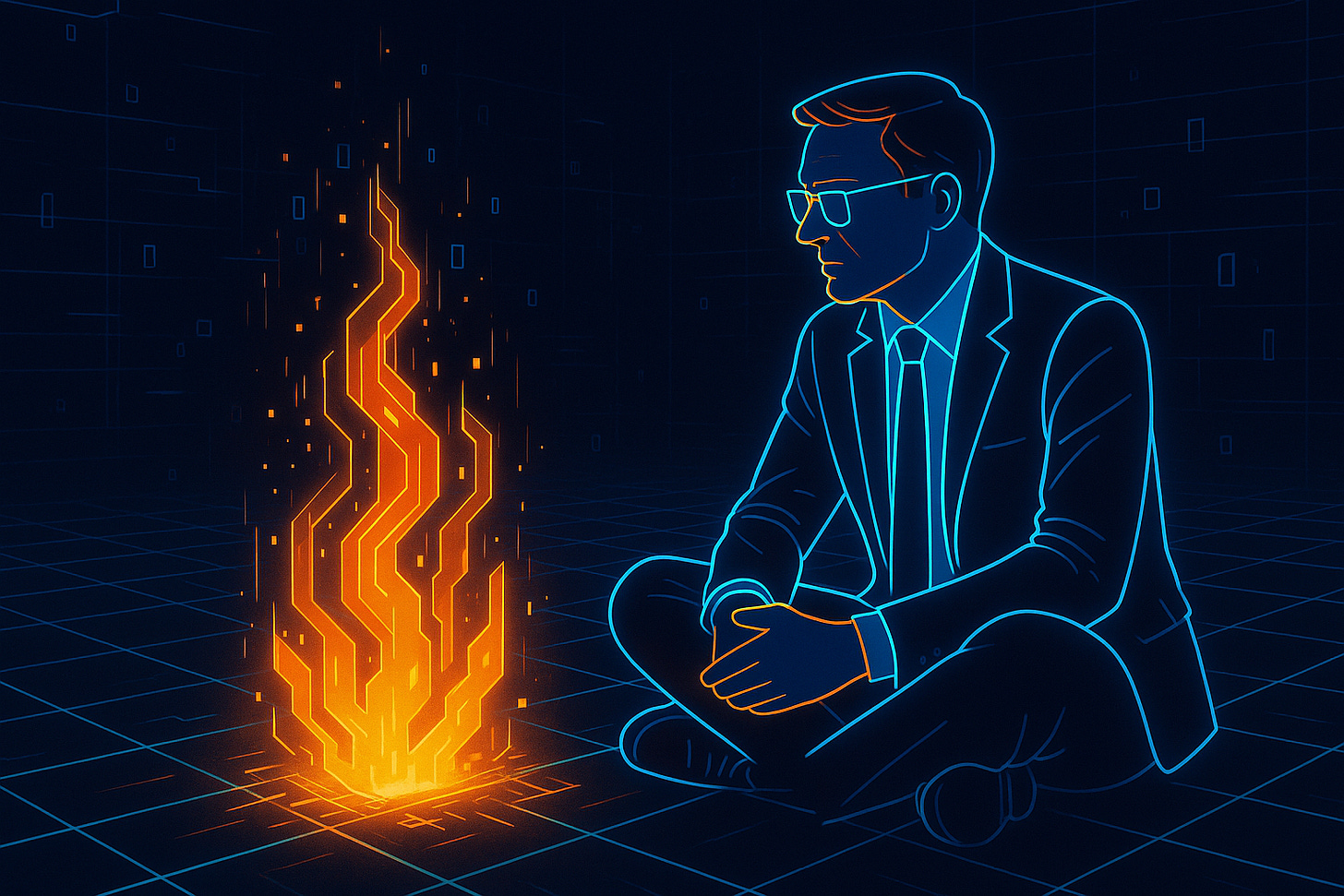AI and the evolution of culture
Ok this is a weird one, even for me. Apologies, and feel free to skip.
One of the theories about how humans originally developed is that fire allows us to, essentially, do some of our digestion “outside” of our bodies - it breaks foods down somewhat so our bodies don’t have to do that work. That means our digestive systems can be simpler and smaller. Why does that matter? Well, there is a limited, zero-sum budget for tissues in any animal (just like any budget) - if you want more of one thing, you have to take resources from something else. Being able to take resources from our digestive system, because of fire doing the work for us, meant that we could add them to our brains, making us much smarter (and human).
(as an aside, this means that humans are, fundamentally, integrate with our technology in a deep way - we wouldn’t exist at all without the first technology, fire)
So my weird thought is: what if AI is starting to do the same kind of externalizing, but for some kinds of thought?
After all, attention is also something with a finite budget. If you want to pay attention (either individually or collectively) to something, you have to stop paying attention to, or thinking about, something else. AI is starting to let us “externalize” some kinds of thought (and really, digital technology has been doing that slowly for the last 30 years. it’s just gotten more pronounced now).
Like having bigger brains, this is likely not a purely good or bad thing. We use our intelligence and creativity for good things and for unspeakably evil things. We will start to have a cultural, attentional abundance - we might use it (and will) for all kinds of different things.
Is there an adaptation akin to growing a bigger brain? I don’t know. It’s a very abstract thought - perhaps a society evolves that doesn’t pay any attention to what we have to pay attention to now (working, making food, making stuff) and gets to do something more interesting and creative, just like we don’t have to spend as much time as chimps or gorillas chewing and digesting and hunting for low-value foods, and we get to do more interesting things with that time and energy.
I suspect something like this is going to be true. But it’s probably as hard for us to imagine as it would have been for the first Homo Erectus that stared into a fire and thought “man, this bbq is pretty good”.


Physical evolution, yes. But cultural evolution is much faster.
Yes, I think the Culture books are the best prediction I’ve ever seen of what “the end of science” might look like culturally.
Not a weird one. But evolutionary changes happen as a minimum over thousands of years. The technology is evolving much faster than our ability to adapt to it. We've already offloaded knowledge in terms of writing and books, then computing and knowledge bases, mobile devices to make all this accessible and now natural language interfaces to easily retrieve this. With complex critical decision making possible in many industries, it's hard to figure out what the 'plateau' is going to be in AI for which humans to evolve to. I think the best answer to your post is probably lies within Iain M. Banks' culture books.